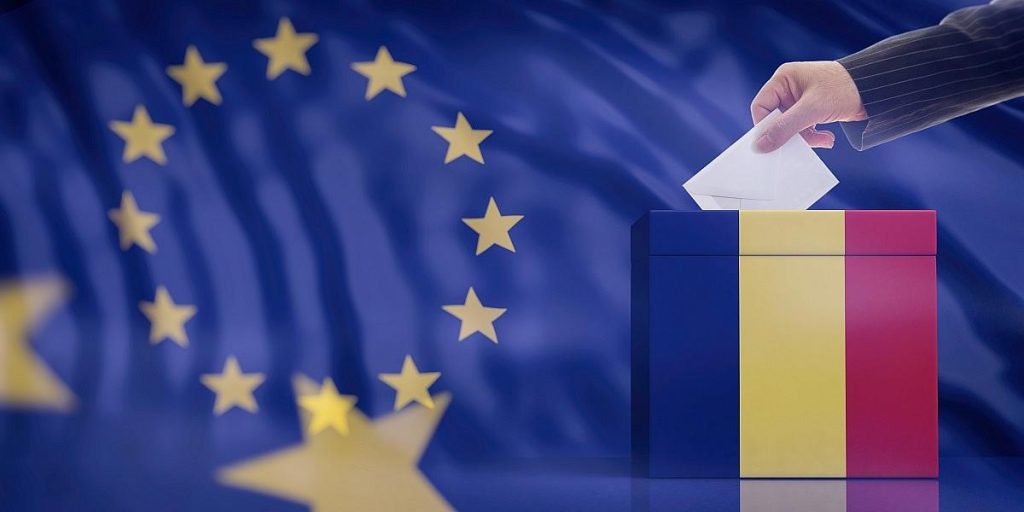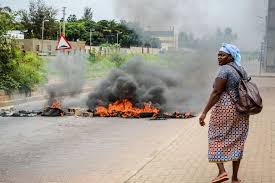
According to Ioan Bucuras, the former Secretary General of the Young European Federalists, currently a Member of the Presidium and a Senior EU Affairs Manager at the media network for Europe – EURACTIV, we have witnessed the most colourful and content-driven EU elections campaign in Romania since it joined the bloc in 2007. The civil society, the political parties, the private sector behave according to their European age: Romania will turn 13 in January 2020 and is already celebrating its bar mitzvah. The country has finally reached a stage where it understands the undeniable importance and role of the European Union.
This did not happen by surprise and is the result of a series of events and multitude of factors, with perhaps the most important one being the variety, resilience and political presence of the Romanian diaspora. It was the Romanian diaspora that turned around the expected outcome of the presidential election in 2014 and that has ever since questioned the governing party PSD, protesting massively throughout Europes capitals whenever political controversies arose. Highly likely, the diaspora will have once again an impact on both tomorrows elections and the presidential elections due to take place at the end of this year.
Parties and their key messages
Taking a closer look at every political party — heres how they campaigned and the key messages they sent out to their electorate and the political direction that Romania will take in the EU:
- PSD (Partidul Social Democrat) (S&D, for the moment at least) — is anything else but a social-democratic party. Their main message translates to Romania deserves more and is largely in line with the rhetoric that we have seen from Eurosceptic parties. Their whole evil foreigners, evil foreign forces and companies, that want to steal our lands and goods crusade reminds of Ceausescus communist rhetoric, but also utterly resembles the messages sent out by populist strongmen within and outside the EU. Their feuds within the Party of European Socialists, their continuous siege against the rule of law, their party leaders approval of Orbán, Le Pen and Salvini, the numerous corruption scandals (and I could go on) led to furious and violent reactions even in their traditional electoral strongholds. Some polls suggest that this fury will be reflected in the outcome of the elections, with the current leading party coming out third.
- ALDE Romania (ALDE Europe) — the coalition partner has distinguished itself as blindly supporting all the efforts of the PSD to mitigate anti-corruption laws and has been pushing a hard Eurosceptic agenda and rhetoric even through its MEPs. Its extremely likely that they will be officially kicked out of the Alliance of Liberals and Democrats right after the elections. On the campaign trail they stood out with photoshopped pictures of their party leadership and, well… that was frankly about it.
- PNL (Partidul Național Liberal) (EPP) — desperately needed to rebrand itself as the traditionally 2nd largest mass party. After announcing that the list will be opened by former presidential hopeful Crin Antonescu, polls plummeted, so the party leadership made a tactical and seemingly greatly beneficial move: having Rareș Bogdan (former prime time TV journalist) join their ranks and campaigning ferociously against the main governing party. Most polls suggest that they will win the elections, which might also lead to a strategy to topple the current government this summer or in autumn at the latest.
- Alianta 2020 USR Plus (Renaissance-ALDE) — built on the foundations of a civil society movement, mainly around white-collar professionals who were fed up with the traditional political class, this alliance, composed of the Save Romania Union (USR) and the Liberty, Unity and Solidarity Party (PLUS), gained momentum and is likely to come out on top in some major cities in Romania. They actively militate for a clearer, less bureaucratic and transparent decision-making process, heavily supporting the rule of law and the full independence of the judiciary. Their bureau decided to join the new Renaissance-En Marche-ALDE construction in the next legislature of the European Parliament. With the former Romanian PM and European Commissioner for Agriculture, Dacian Cioloș, the party will also have a door open to or at least very close ties with some ranks of the EPP.
- PMP (Partidul Mișcarea Populară) (EPP) — with their list being led by former Romanian president Traian Băsescu, PMP has a real chance of passing the 5% threshold and sending the former head of state to Brussels. Their stance has been surprisingly federalist (even more federalist than the majority of the EPP members), but has kept the classical EPP anti-Socialist line, with Basescu repeatedly attacking Timmermans and the Party of European Socialists during the campaign.
- Pro Romania (affiliation unclear) — a newly formed party around former Romanian Prime Minister Victor Ponta, Pro Romania has had a pro-European message and has branded itself as the real social democrats party, composed mainly of members that were formerly active in the PSD, but who were fed up with the incumbent leadership. It remains unclear which family they will join at European level. There have been talks with the ECR, the S&D and the new ALDE — which led to Ponta being called a con man by some senior members of PES.
- UDMR (Democratic Alliance of Hungarians in Romania/DAHR) (EPP) — unfortunately has appealed to the same old stirring the nationalistic flame approach that we have been accustomed with since the 90s, announcing just a few days before the elections that it stops its cooperation with the governing parties, due to an allegedly inter-ethnic scandal (for more details, google Valea Uzului).
This approach is obviously beneficial not only to the DAHR, but also to some hardcore nationalist wings within the PSD (and other Romanian parties). Some sources in the DAHR even suggest that their close connection with Hungarian PM Viktor Orbán will have the party follow suit if Fidesz is to leave the EPP.
In a nutshell, we have witnessed an unprecedented campaign in Romania. Political directions, new allegiances, the countrys role within the future framework of a functional security and defence mechanism, European federalism, Euroscepticism, intergovernmentalism, climate change (albeit marginally)… all of this was part of Romanias political battle scene over the past few weeks.

Judicial referendum to coincide with EU elections
The end of May might also be the end of political strongman Liviu Dragnea (president of the governing party PSD). The Romanian judicial referendum taking place tomorrow, on the same day of the European elections, is likely to cement the Presidents request to prohibit amnesties and pardons for corruption offences.
The High Court of Cassation and Justice will give its final verdict on the 27th of May, just one day after the elections, where Dragnea is facing a sentence of three years and a half in prison for abuse of office for fictitiously hiring civil servants without having them doing any work. There are also speculations that Dragnea will unilaterally announce his candidacy for the Romanian presidency on Sunday evening, without statutorily having it approved and voted by the partys Congress, in order to create an Escobarian-like telenovela, should he be handcuffed on Monday.
Theres a lot at stake this weekend for Romania. Having closely observed the campaign online and on the ground, I can happily say that the society has not caved into anti-European, populistic rhetoric and that it will most likely punish the governing parties this Sunday, while massively voting in favour of the judicial referendum, sending out a strong pro-European message.
Could this be a shift of power and the beginning of Romanias European Renaissance? Like the farmer who travels the world to find his three missing sons in the movie The Water Diviner, I have been asked if I have hope. I replied instantly: Hopes a necessity where I come from.


